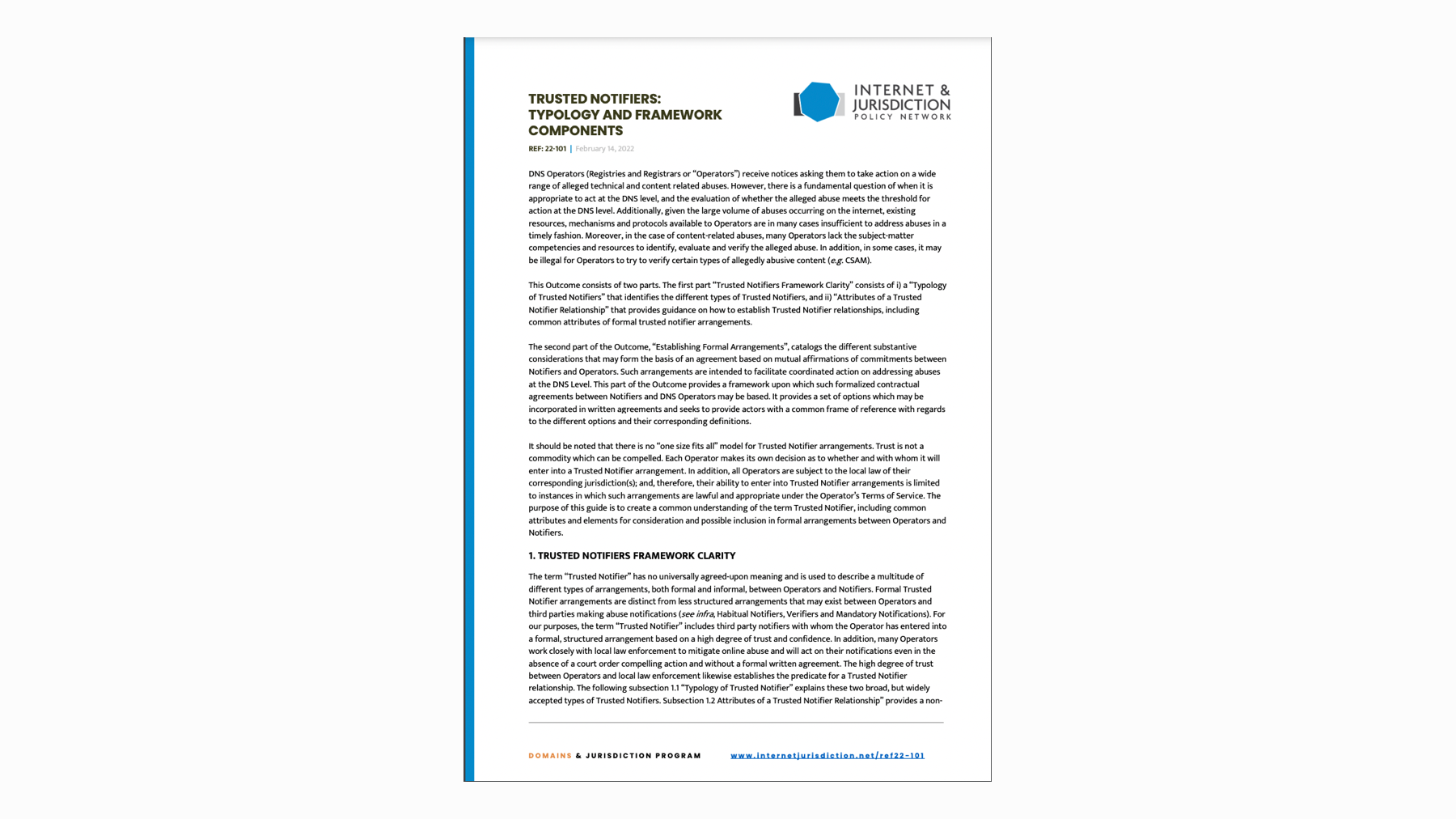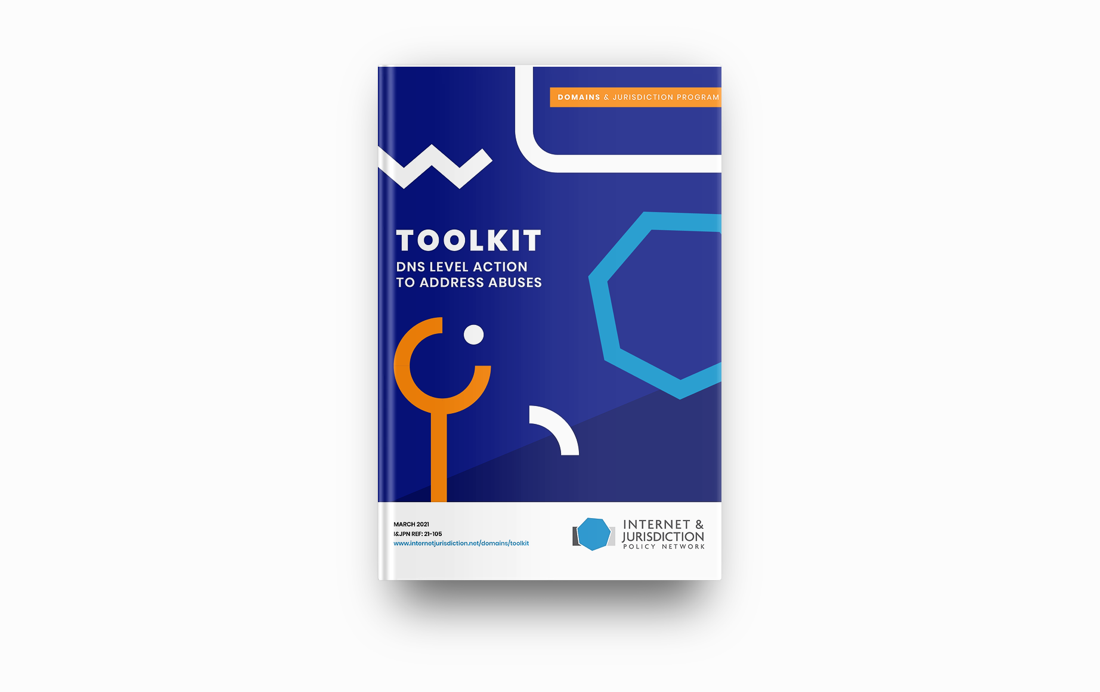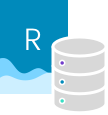Domain Name System (DNS) Operators (Registries and Registrars) receive notices asking them to take action on a wide range of alleged technical and content-related abuses. However, there is a fundamental question of when it is appropriate to act at the DNS level and the evaluation of whether the alleged abuse meets the threshold for action at the DNS level. Additionally, given the large volume of abuses occurring on the internet, existing resources, mechanisms, and protocols available to Operators are in many cases insufficient to address abuses in a timely fashion.
Based on the work of its dedicated Contact Group, the Internet & Jurisdiction Policy Network is releasing a new document: Typology and Framework Components for Trusted Notifiers. It is intended to provide a framework upon which formalized contractual agreements between Notifiers and DNS Operators may be based.
The document catalogs the different substantive considerations that may form the basis of an agreement based on mutual affirmations of commitments between Notifiers and Operators. Such arrangements are intended to facilitate coordinated action on addressing abuses at the DNS Level.
“By creating a common understanding of the term Trusted Notifier, and including common attributes and elements for consideration and possible inclusion in formal arrangements between Operators and Notifiers, we hope that actors have a common frame of reference to point to when dealing with DNS abuse”, said Elizabeth Behsudi, Director of the Domains & Jurisdiction Program.
Learn more about the Domains & Jurisdiction Program and Contact Group members here
View all previous outcomes, including the Toolkit on DNS Level Action to Address Abuse here
The Internet & Jurisdiction Policy Network is the multistakeholder organization addressing the tension between the cross-border internet and national jurisdictions. It engages over 400 entities from governments, the world’s largest internet companies, technical operators, civil society groups, academia, and international organizations from over 70 countries.





